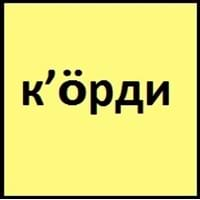Japanese vs Kurdish
Countries
Japan
Iraq, Kurdistan
National Language
Japan
Azerbaijan, Georgia, Iran, Iraq, Syria, Turkey
Second Language
Not spoken in any of the countries
Not spoken in any of the countries
Speaking Continents
Asia, Pacific
Middle East
Minority Language
Palau
Not spoken in any of the countries
Regulated By
Agency for Cultural Affairs (文化庁) at the Ministry of Education
Not Available
Interesting Facts
- In Japanese Language, there are 4 different ways to address people: kun, chan, san and sama.
- There are many words in Japanese language which end with vowel letter, which determines the structure and rhythm of Japanese.
- The vocabulary in Kurdish is of Iranian origin.
- In the middle East, Kurdish is the fourth largest ethnic group.
Similar To
Korean Language
Farsi Language
Derived From
Not Available
Not Available
Alphabets in
Japanese-Alphabets.jpg#200
Kurdish-Alphabets.jpg#200
Scripts
Kana
Arabic, Cyrillic, Latin
Writing Direction
Left-To-Right, Horizontal, Top-To-Bottom
Right-To-Left, Horizontal
Hello
こんにちは (Kon'nichiwa)
Silaw
Thank You
ありがとう (Arigatō)
Sipas
How Are You?
お元気ですか (O genki desu ka?)
Tu çawa yî?
Good Night
おやすみなさい (Oyasuminasai)
Şev xweş
Good Evening
こんばんは (Konbanwa)
Evare baş
Good Afternoon
こんにちは (Konnichiwa!)
Nee-wa-rowt bash
Good Morning
おはよう (Ohayō)
Bayanit bash
Please
お願いします (Onegaishimasu)
Bê zehmet
Sorry
ごめんなさい (Gomen'nasai)
Bibûre
Bye
さようなら (Sayōnara)
Be xêr çî
I Love You
愛しています (Aishiteimasu)
Ez te hez dikem
Excuse Me
すみません (Sumimasen)
Bê zehmet
Dialect 1
Sanuki
Northern Kurdish
Where They Speak
Kagawa
northern Iraq, northern Syria, northwest Iran, southeast Turkey
Dialect 2
Hakata
Central Kurdish
Where They Speak
Fukuoka
Iraq, Kurdistan Province of western Iran
How Many People Speak
Not Available
Dialect 3
Kansai
Southern Kurdish
Where They Speak
kansai
Eastern Iraq
How Many People Speak
Not Available
Native Name
日本語
Kurdí / کوردی / к’öрди
Alternative Names
Not Available
Not Available
French Name
japonais
kurde
German Name
Japanisch
Kurdisch
Pronunciation
/nihoɴɡo/: [nihõŋɡo], [nihõŋŋo]
Not Available
Ethnicity
Japanese (Yamato)
Kurds
Origin
1185
16th century CE
Language Family
Japonic Family
Indo-European Family
Subgroup
Not Available
Indo-Iranian
Branch
Not Available
Not Available
Early Forms
Old Japanese, Early Middle Japanese, Late Middle Japanese and Early Modern Japanese
Not Available
Standard Forms
Japanese
Kurdish
Language Position
Not Available
Signed Forms
Signed Japanese
Not Available
Scope
Individual
Macrolanguage
ISO 639 6
Not Available
Not Available
Glottocode
nucl1643
kurd1259
Linguasphere
45-CAA-a
58-AAA-a
Language Type
Living
Living
Language Linguistic Typology
Subject-Object-Verb
Subject-Object-Verb
Language Morphological Typology
Agglutinative, Synthetic
Not Available
Japanese and Kurdish Language History
Comparison of Japanese vs Kurdish language history gives us differences between origin of Japanese and Kurdish language. History of Japanese language states that this language originated in 1185 whereas history of Kurdish language states that this language originated in 16th century CE. Family of the language also forms a part of history of that language. More on language families of these languages can be found out on Japanese and Kurdish Language History.
Japanese and Kurdish Greetings
People around the world use different languages to interact with each other. Even if we cannot communicate fluently in any language, it will always be beneficial to know about some of the common greetings or phrases from that language. This is where Japanese and Kurdish greetings helps you to understand basic phrases in Japanese and Kurdish language. Japanese word for "Hello" is こんにちは (Kon'nichiwa) or Kurdish word for "Thank You" is Sipas. Find more of such common Japanese Greetings and Kurdish Greetings. These greetings will help you to be more confident when conversing with natives that speak these languages.
Japanese vs Kurdish Difficulty
The Japanese vs Kurdish difficulty level basically depends on the number of Japanese Alphabets and Kurdish Alphabets. Also the number of vowels and consonants in the language plays an important role in deciding the difficulty level of that language. The important points to be considered when we compare Japanese and Kurdish are the origin, speaking countries, language family, different greetings, speaking population of these languages. Want to know in Japanese and Kurdish, which language is harder to learn? Time required to learn Japanese is 88 weeks while to learn Kurdish time required is 4 weeks.





